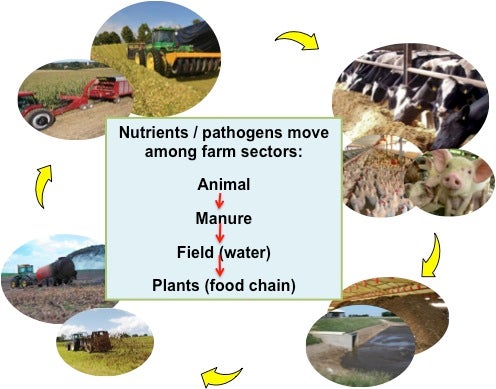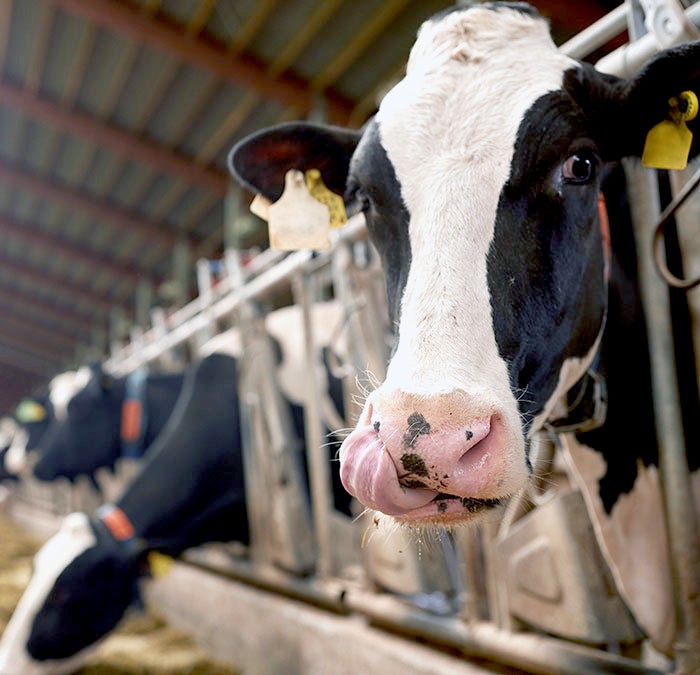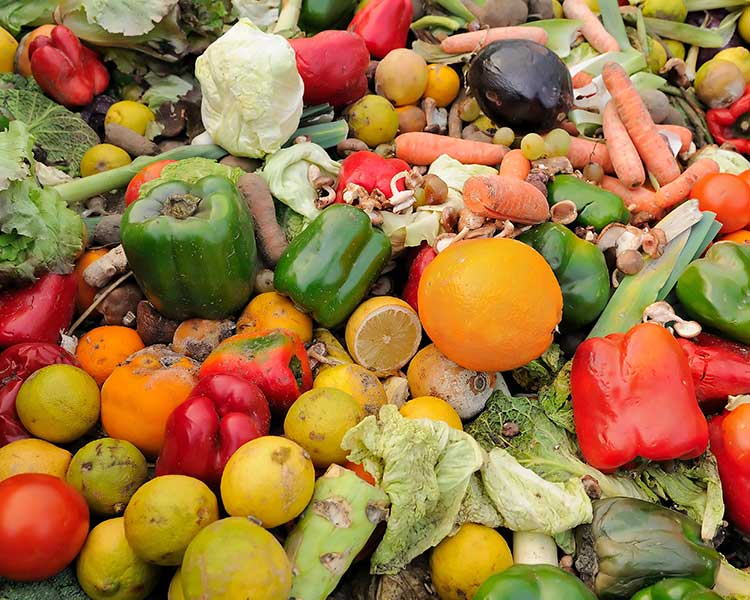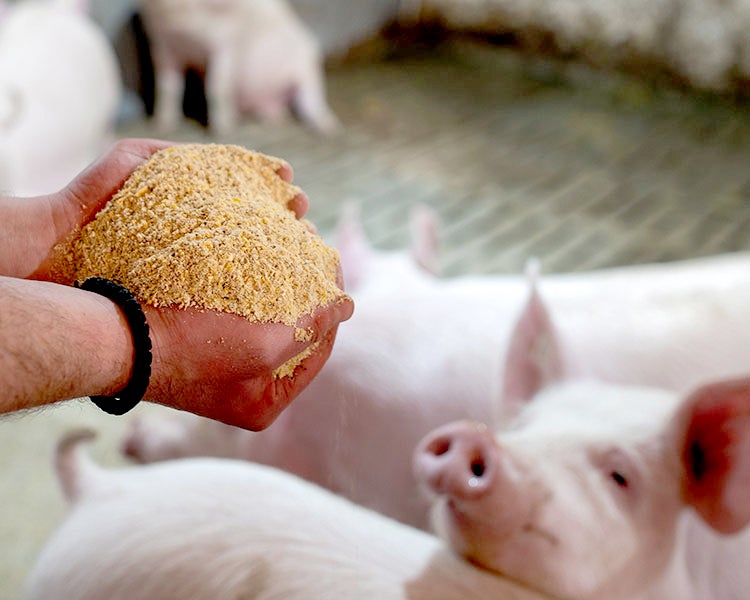Research
Research Topics
Nitrogen, Phosphorus, and Integrated Management
Nitrogen and phosphorus are essential nutrients for growing plants and animals. Insufficient nutrients diminish yields; excessive applications translate to wasted resources and environmental pollution. The work of Dr. Dou’s group features an integrated system nutrient management approach, coupling nutrient optimization in animal feeding with manure management and targeted nutrient application to crops for enhanced production efficiency and reduced environmental footprint.

Integrated whole farm management based on nutrients (pathogen) flow pathway
Pathogens, Antimicrobial Resistance (AMR), and Livestock Farming
Livestock animals are important reservoirs of zoonotic pathogens as well as antimicrobial resistant determinants (antibiotic residues, AMR microbes, and AMR genes). What happens to these “microbial pollutants” in the post-shed environment? How long do they survive under different management conditions? What is their distribution pattern in the intrinsically linked farming sectors and the dissemination pathways to the broader terrestrial and aquatic ecosystems? What intervention may help mitigate relevant risks associated with animal farming concerning food safety and public health? The research of Dr. Dou’s group addresses some of these critical issues.

Food Waste, Food Security, and Sustainability
Sustainable food security is an issue that intersects many of the contemporary challenges the world is struggling to deal with today, e.g. water scarcity, water pollution, resource limitation, land degradation, habitat and biodiversity loss, climate change, and hunger and poverty. Dr. Dou collaborates with national and international experts to examine sustainable food security issues from multiple dimensions, such as food waste reduction and reuse, engaging, and empowering smallholder farmers, etc.

Developing Novel Feeds from Food Waste and Crop Residue Biomass from Cows
Livestock farming is at a crossroads, its sustainable future challenged by competing interests for limited resources and urgent need to mitigate environmental and climate footprints, amid a rapidly growing global demand for animal protein. One viable solution overlooked, is to leverage the innate ability of animals as nature’s most effective recyclers, able to utilize a wide variety of plant biomass materials as feed resources in producing meats, milk, and eggs. This project will deploy an innovative sequential fermentation approach to create novel feeds for dairy cows using food waste of fruit and vegetable discards and post-harvest crop residues such as wheat straw and spent mushroom substrates, abundantly available but currently wasted or landfilled.

Research Project
Developing novel feeds via bioprocessing of food waste and crop residue biomass to support sustainable dairy production
Dr. Dou’s research project, developing novel feeds via the bioprocessing of food waste and crop residue biomass to support sustainable dairy production, had four main objectives.
- Objective 1: Treatment of crop residue biomass will proceed with selected fungal strains able to alter lignin-cellulose complexes through aerobic fermentation to enhance nutrient availability, then combining fruit and vegetable wastes for bacteria-driven anaerobic fermentation to create safe nutritionally enhanced novel feeds.
- Objective 2: Fermented novel feeds will be incorporated into cow diets; milk production, rumen microbiota and enteric methane emissions determined.
- Objective 3: Broader impacts resulting from novel feeds partially substituting conventional feed ingredients, in terms of resources spared and greenhouse gas emissions avoided, will be quantitatively assessed.
- Objective 4: Interwoven with interdisciplinary research are educational activities with classroom learning, research immersion, and hands-on problem-solving and opportunity-finding on selected dairy farms.
This proposal addressed the priority topics of “environmental synergies of animal production” for reduced “emissions to the atmosphere and hydrosphere” under Program Area Priority A1261 “Inter-Disciplinary Engagement in Animal Systems (IDEAS)”.
USDA NIFA program: IDEAS (Inter-Disciplinary Engagement in Animal Systems)
Project duration: 2/1/2022 – 1/31/2025
Award #: 2022-68014-36664; CRIS #: 1028184
Project key personnel:
- Drexel University: Dr. Jonathan Deutsch
- Penn Vet: Dr. Linda Baker, Dr. Dipti Pitta, Dr. Joe Bender, Dr. Brianna Parsons
- University of Minnesota: Dr. Bo Hu, Dr. Gerald Shurson
- Food waste reduction and reuse, food security, sustainability: (i) The Last Food Mile conference, USDA AFRI, 2014. (ii) Household food discard — sample collection and characterization, The University Research Foundation. 2015. (iii) ReFeed — returning wasted food to the human food chain via animal feeding for enhanced food-energy-water and environmental sustainability. NSF-NSFC. PI. Pending.
- Mitigating antibiotic resistance risks through a holistic approach. Pennsylvania Department of Agriculture. PI. 2017.
- Antibiotic resistance genes in the fecal microbiome of dairy cattle and humans. PennCHOP. PI. 2017-18.
- Increasing Economic and Environmental Sustainability of Small and Medium
Sized Dairy Farms. USDA AFRI. Co-PI. 2009-2013. - Integrated management program on lower Susquehanna dairy farms. National Fish and Wildlife Foundation, PI. 2008-2012.
- Survival and Transport of Escherichia coli O157 and Salmonella Newport in Manure and Manured Soils. USDA National Research Initiative (NRI) Competitive Grants Program, PI. 2007-2012.
- Enhancing Veterinary School Faculty and Student Competence in a Global Economy through Curriculum Building and Strengthening Collaboration with Chinese Dairy Industry. USDA International Science and Education (ISE) Competitive Grants program, Co-PI. 2008-2011.
- Development and dissemination of optimal phosphorus management technologies on dairy farms. USDA Initiative for Future Agriculture and Food Systems(IFAFS) competitive program, PI. 2001-2006.
- Assessing the impact on surface and ground waters of N- vs. P based manure application strategies. USDA, National Research Initiative (NRI) Competitive Research Program, PI. 2001-2005.
- Using chemical amendments to fix phosphorus and nitrogen in animal manure to reduce potential losses. US EPA Chesapeake Bay Program, PI. 2001-2002.
- Coal fly ash as bedding amendment for restrained bacterial growth and reduced nutrient losses. Pennsylvania Animal Health Commission, PI. 2001-2002.Characterizing manure phosphorus to identify management strategies for reduced water pollution. Pennsylvania Department of Agriculture. PI. 2000.
- Development of a farm model to reduce nitrogen losses in dairy cows and improve farm economics. USDA CSREES. Co-PI. 1997-2004.
